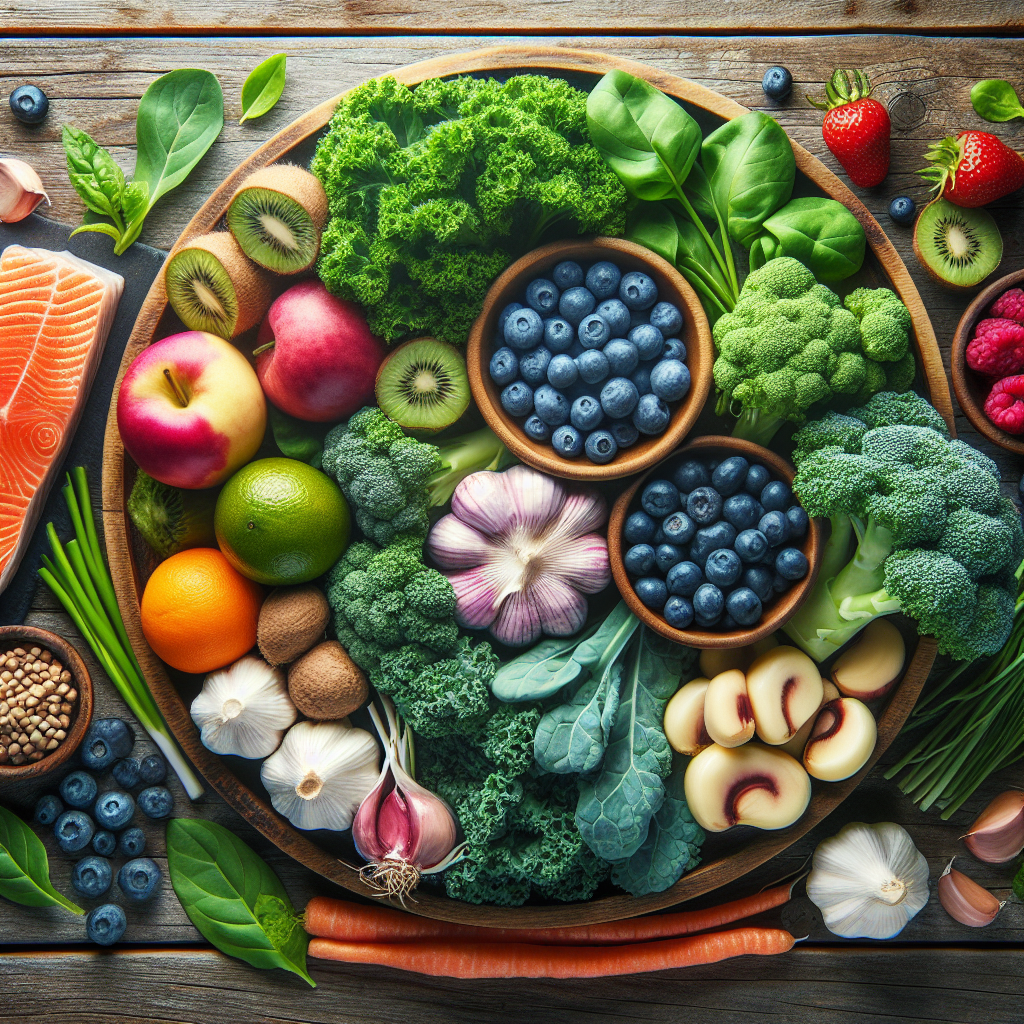Top Organic Foods to Support Kidney Function Naturally
Your kidneys work tirelessly to filter waste, balance fluids, and regulate blood pressure. Supporting these vital organs with the right foods can help prevent kidney stones, improve function, and reduce the risk of chronic kidney disease. Organic foods, free from harmful pesticides and additives, provide particularly powerful nutritional benefits for kidney health.
Why Organic Matters for Kidney Health
Conventionally grown produce often contains pesticide residues that may place additional strain on your kidneys. Choosing organic reduces this toxic burden while providing higher concentrations of kidney-supportive nutrients like antioxidants, potassium, and magnesium. Studies show organically grown foods contain significantly more phenolic compounds that help combat oxidative stress – a major contributor to kidney damage.
Best Organic Fruits for Kidney Support
1. Organic Blueberries
Packed with anthocyanins, these antioxidant powerhouses help reduce inflammation in the kidneys. Their low potassium content (about 114 mg per cup) makes them ideal for those with existing kidney concerns. Research suggests blueberries may help prevent the formation of calcium oxalate crystals, the most common type of kidney stone.
2. Organic Cranberries
Nature’s UTI fighter also prevents kidney stones by making urine more acidic and reducing calcium oxalate formation. Choose unsweetened organic cranberry juice or fresh berries. A 2021 study published in the American Journal of Clinical Nutrition found regular cranberry consumption reduced recurrent UTIs by 26% in women with a history of infections.
3. Organic Apples
High in fiber and anti-inflammatory compounds, apples help remove toxins while their peel contains ursolic acid that may protect against kidney damage. The pectin in apples binds to toxins in the digestive tract, reducing the kidney’s detoxification workload. One medium apple provides about 4 grams of fiber with only 195 mg of potassium.
Vegetables That Boost Kidney Function
1. Organic Kale
This leafy green provides vitamin K, iron, and antioxidants that support detoxification. Its moderate potassium levels (about 150 mg per cup) are kidney-friendly when consumed in proper portions. Kale is particularly rich in sulforaphane, a compound that activates detoxification enzymes in the kidneys.
2. Organic Garlic
A natural diuretic, garlic helps flush excess sodium and toxins while reducing inflammation that can damage kidney tissue. Garlic contains allicin, which has been shown in studies to potentially slow the progression of chronic kidney disease by reducing oxidative stress markers.
3. Organic Red Bell Peppers
Low in potassium (about 157 mg per pepper) but high in vitamins A, C, and B6, these colorful vegetables contain lycopene that protects against oxidative kidney damage. One medium red bell pepper provides 169% of your daily vitamin C needs, crucial for collagen production in kidney tissues.
Protein Sources That Support Kidney Health
1. Organic Pasture-Raised Eggs
Provide high-quality protein with minimal phosphorus (about 86 mg per large egg), making them easier on kidneys than other animal proteins. The choline in eggs supports cellular health in renal tissues. Look for eggs certified organic and pasture-raised for optimal nutrient density.
2. Organic Wild-Caught Salmon
Rich in omega-3 fatty acids that reduce inflammation, wild salmon is preferable to farmed varieties which may contain contaminants. A 3-ounce serving provides about 1,500 mg of omega-3s with only 50-75 mg of phosphorus, depending on preparation method.
3. Organic Lentils
An excellent plant-based protein source high in fiber that helps regulate blood sugar – important for preventing diabetic kidney disease. Though higher in potassium (about 365 mg per cooked half-cup), their fiber content slows mineral absorption, making them safer for kidneys than refined grains.
Herbs and Spices for Kidney Support
- Organic Turmeric: Curcumin reduces inflammation and may slow progression of chronic kidney disease. Studies show it can reduce proteinuria (protein in urine), a key marker of kidney damage.
- Organic Ginger: Helps cleanse kidneys and improve circulation to these organs. Ginger’s gingerols have been shown to inhibit the formation of kidney stones in laboratory studies.
- Organic Parsley: A natural diuretic that promotes urine flow and toxin removal. Parsley contains apiol and myristicin, compounds that stimulate kidney filtration.
- Organic Cinnamon: Helps regulate blood sugar levels, reducing risk of diabetic kidney disease. Research suggests it may improve creatinine clearance rates.
Hydration: The Foundation of Kidney Health
No discussion of kidney support is complete without addressing hydration. The kidneys require adequate water to effectively filter waste. Organic herbal teas like:
- Dandelion root tea (stimulates bile production and supports detoxification)
- Nettle leaf tea (rich in kidney-supportive minerals like silica and magnesium)
- Hibiscus tea (may lower blood pressure through its diuretic effect)
provide hydration without the sugar and additives of conventional beverages. Pure, filtered water remains the best choice for kidney health – aim for at least 64 ounces daily unless otherwise directed by your physician.
Foods to Limit for Kidney Health
While focusing on beneficial foods, it’s equally important to reduce or avoid:
- Processed foods high in sodium (can increase blood pressure and kidney workload)
- Conventional dairy (can be hard to digest and may contain inflammatory compounds)
- Non-organic meats (may contain growth hormones and antibiotic residues)
- Sugary beverages (associated with increased risk of kidney stones)
- Excessive caffeine (can dehydrate and strain kidneys)
- Alcohol (dehydrates and can interfere with kidney function)
By incorporating these organic foods into your diet while staying properly hydrated, you create an optimal nutritional environment for your kidneys to function at their best. A 2020 study in the Clinical Journal of the American Society of Nephrology found that a diet rich in plant-based foods reduced the risk of chronic kidney disease by 14%. Always consult with a healthcare provider before making significant dietary changes, especially if you have existing kidney conditions or are on medications that affect kidney function.
Remember that organic foods not only benefit your kidneys but support overall health by reducing exposure to pesticides, synthetic fertilizers, and food additives. Transitioning even a few key items in your diet to organic versions can make a meaningful difference in your kidney health over time.
